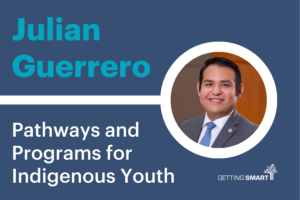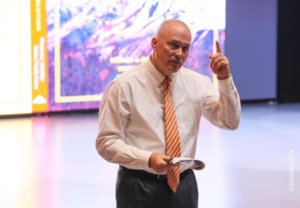2011 Excellence in Action: A Climate of Change
 Education leaders, policymakers and lawmakers convened at the 2011 Excellence in Action National Summit on Education Reform in San Francisco, Calif. this week to discuss personal digital learning, new innovations in education and the future transformation of education reform in the U.S.
Education leaders, policymakers and lawmakers convened at the 2011 Excellence in Action National Summit on Education Reform in San Francisco, Calif. this week to discuss personal digital learning, new innovations in education and the future transformation of education reform in the U.S.
The key themes of the event covered the ways in which digital learning will transform education in the near future to deliver increased student success and performance. Speakers throughout the last two days included:
- Sal Khan of Khan Academy
- Governor Jeb Bush
- Governor Bob Wise
- Melinda Gates of the Bill and Melinda Gates Foundation
- Rupert Murdoch, and
- the Foundation For Excellence Chiefs for Change.
Khan kicked off his afternoon speech Thursday with a humbling story about how his niece, Nadia, inspired one-to-one tutoring sessions to improve math and science skills. This effort then expanded to his 20 cousins who found they enjoyed learning from Khan through a YouTube video for several key reasons. His cousins were able to play the videos multiple times over to grasp tough concepts at their own pace.
Khan’s videos have scratched the surface of the promise of personal digital learning. Students can repeatedly play back videos to learn at their own pace and move on when the concept is grasped rather than when the unit is over. As Khan said, “If a house is only 80 percent complete on the first floor, you wouldn’t build a second floor. But in education, we do that.” Progression in the educational system should be based on proficiency not age or time.
What’s more, Khan Academy, which now delivers more than 2,600 videos, has shown proven results in helping students become proficient in math and science. Khan is well on his way to delivering his mission, “a world-class education for everyone, anywhere.”
Following Khan, former Governors Bush and Wise released a draft report card on digital learning and the Roadmap for Reform Thursday afternoon. The draft report card assesses states’ alignment to current laws, policies and the 10 Elements of High Quality Digital Learning. The Roadmap for Reform will help governors, lawmakers and policymakers build a bold agenda to reform its policies for personal digital learning. For more, visit www.DigitalLearningNow.com.
Gates spoke Thursday evening about the ways that the Common Core Standards are going to pave the way for digital learning for students anytime, anywhere. Gates said, “It’s the states leading this effort, not the federal government.”
Technology and digital learning has the power to change students’ lives, but policymakers need to reform policies that prohibit the process. Gates called policymakers to action stating, “Clear the way for Common Core Standards.”
Friday morning, Murdoch spoke about how our educational system is falling short in delivering student-centered education that fully integrates technology in a beneficial way. He articulated that our policies and teaching methods need to move out of the 19th century to produce positive performance outcomes.
“If we attached computers to leeches, medicine wouldn’t be any better than it was in the 19th century,” Murdoch said. “The way I see it, this is not a Republican or Democratic issue. It’s an achievement issue.”
Following Murdoch, the Foundation for Excellence Chiefs for Change joined together for a panel discussing the ways that the leaders are representing students’ education through policies that support choice, teaching, and accountability. The chiefs spoke about a persistant effort to focus on effective teaching that delivers the fundamental skills students need to succeed in the future.
For more, follow @Getting_Smart and #EIA11 on Twitter.





0 Comments
Leave a Comment
Your email address will not be published. All fields are required.